European infrastructures

DANUBIUS-RI
DANUBIUS-RI – International Centre for Advanced Studies on River-Sea Systems
Italian coordinator:
- Georg Umgiesser – CNR-ISMAR, National Coordinator DANUBIUS-RI, Vice-President of the CNR DANUBIUS-Italy Commission
ISMAR contacts:
- Francesca De Pascalis – CNR-ISMAR, Italian Representative BGR DANUBIUS-RI, member of the CNR DANUBIUS-Italy Commission
- Debora Bellafiore – CNR-ISMAR, member of the CNR DANUBIUS-Italy Commission
DANUBIUS-RI is a pan-European distributed research infrastructure, included since 2016 in the Roadmap of the European Strategy Forum on Research Infrastructures (ESFRI). The DANUBIUS-RI infrastructure will have as its main purpose to support interdisciplinary research on large River-Sea systems, allowing researchers to study these environments by improving the understanding of processes in order to address current challenges. and emerging markets, facilitate sustainable management and maintain ecosystem services.
DANUBIUS-RI is currently being implemented with 12 countries involved in the DANUBIUS-IP project which aims to make 4 thematic Nodes and 12 Supersites operational (for more information on the components, consult the infrastructure website).
The Italian participation in DANUBIUS-RI is coordinated by the National Research Council – Institute of Marine Sciences (CNR-ISMAR) and also involves the Consortium for the coordination of research relating to the Venice lagoon system (CORILA) and the National Institute of Oceanography and Experimental Geophysics (OGS).
Currently, CNR-ISMAR makes its modeling skills available in DANUBIUS-RI, coordinating the Modeling Node of the entire infrastructure and increasing the harmonized digital offer for the “Po Delta and Lagune dell’Alto Adriatico” Supersite, concerning integrated data in-situ, satellite and modeling, providing services related to:
- Tools 4 MSP;
- Models codes;
- Training material.
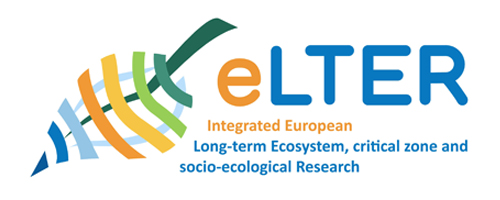
eLTER-RI
eLTER-RI – Integrated European Long-Term Ecosystem, Critical Zone & Socio-Ecological Research Infrastructure
Italian coordinator:
- Giorgio Matteucci – CNR-IBE – Coordinator of the LTER-Italy network
ISMAR contacts:
- Caterina Bergami: LTER-Italy Secretariat
eLTER-RI is a pan-European in-situ research infrastructure whose mission is to study long-term ecological changes in terrestrial, freshwater and transitional ecosystems through a holistic ‘whole system’ approach, based on the integration of different environmental disciplines, to understand the role and interactions of multiple and complex ecosystem variables.
The RI consists of:
- 26 national networks, 500 research sites and 50 LTSER platforms, providing broad and systematic coverage of key European ecosystems, integrating as well the socio-ecological components;
- 1 service portfolio consisting of national and central services (e.g.: transnational and virtual access to the sites). Among the thematic services being developed: the Quality Assurance for Data (QAD), the Modelling and Analysis Tools (MAT), Design, Interoperability and Synthesis (DIS) and the Technical Innovation and Development (TID).
eLTER is now in the preparatory phase on the way to becoming a fully fledged RI and is funded by the European Commision through the H2020 projects eLTER PPP and eLTER PLUS.
The Italian participation in eLTER-RI is coordinated by the CNR and involves various Italian institutions including universities, research bodies and local authorities. The LTER-Italy network, coordinated by the CNR, consists of 79 research sites spread all over the territory and representative of the main ecosystem typology of our country.
CNR-ISMAR coordinates three of the Italian research sites involved in the RI (Venice Lagoon, Gulf of Venice and Delta del Po and Costa Romagnola) and the parent site Northern Adriatic Sea, it is represented within the Coordination Committee and the LTER-Italy Secretariat and participates in the H2020 eLTER PLUS project.
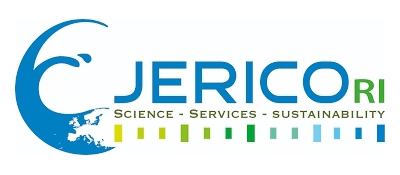
JERICO-RI
Joint pan-European Research Infrastructure for Coastal Observations
National representative:
- Marcello G. Magaldi – CNR-ISMAR – CNR responsible for the JERICO-DS project
ISMAR contacts:
- Carlo Mantovani: CNR responsible for the JERICO-S3 project
- Carolina Cantoni: CNR contact point for the relations with other RIs
- Laura Barbieri: CNR responsible for administrative and financial coordination
JERICO-RI is a distributed marine research infrastructure with two main objectives: a) to consolidate an extended international community, made up of scientists from different disciplines, with the common goal of creating an integrated system of research marine facilities dedicated to the observation of coastal environments; b) to monitor coastal marine environments for understanding their evolution in response to climate change and to direct anthropogenic impacts. JERICO-RI is currently funded by two active Horizon projects: JERICO-S3, for providing transnational accesses to marine facilities and to their data, and JERICO-DS, for designing the initial ESFRI phase. Currently, JERICO-RI includes 17 countries and nearly 40 partners are joining the JERICO-S3 and JERICO-DS projects, involving more than 670 marine observation platforms. The Italian participation in JERICO-RI is coordinated by the CNR and involves the OGS. CNR and OGS mainly contribute to the research infrastructure with their HF radar networks and fixed platforms in coastal environments. Nationwide, JERICO currently provides access to 15 observational sites including:
- 3 oceanographic moorings;
- 2 multi-parameter buoys;
- 3 wavemeters;
- 7 high-frequency coastal radar systems.
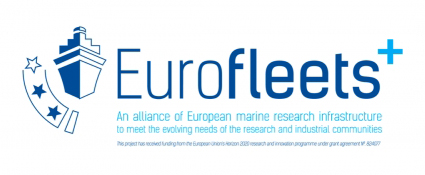
EuroFleets
An alliance of European marine research infrastructure to meet the evolving needs of the research and industrial communities
National representative:
- Anna Vetrano – CNR-ISMAR – CNR responsible for the Eurofleets+ project
ISMAR contacts:
- Katrin Schroeder: katrin.schroeder@ismar.cnr.it
- Laura Barbieri: CNR responsible for administrative and financial coordination
EUROFLEETS+ will facilitate open free of charge access to an integrated and advanced research vessel fleet, designed to meet the evolving and challenging needs of the user community. European and international researchers will be able to apply for several access programmes, through a single-entry system. EUROFLEETS+ will enable access to a unique fleet of 27 state-of-the-art research vessels from European and international partners. Through competitive Calls, researchers will be able to access the entire North Atlantic, Mediterranean, Black Sea, North Sea, Baltic Sea, Pacific Southern Ocean and Ross Sea. In addition to ship time, researchers will also have access to new AUVs and ROVs. A unique portable telepresence system will enable remote access by researchers and diverse end users including the public. EUROFLEETS+ will undertake joint research in challenging and highly relevant areas, including deep ocean research and exploration, data management, and enabling future virtual access. To maximise the impact of the project, EUROFLEETS+ will implement diverse training and education activities and widespread dissemination and communication actions. Plans for open science will provide access to new data and information for scientists from different domains. Advanced IT systems, a multi-functional website, and robust logistical management will provide seamless integration of services and easy access for user groups.
ISMAR is presently involved in these activities on multiple aspects: 1) it received access to the RV Belgica, on which it has conducted the TAlPro2022 oceanographic cruise (May 2022), to repeat the Tyrrhenian Sea & Algero-Provencal component of the Med-SHIP programme, 2) it is participating to the organisation of the Floating University on RV Dallaporta (September 2022), 3) it is the operator of a glider which is included in the trans-national access calls.
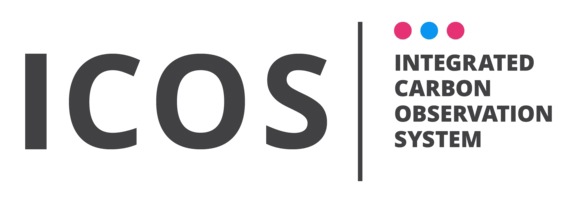
ICOS-ERIC
Integrated Carbon Observation System – European Research Infrastructure Consortium
Italian coordinator: Carlo Calfapietra- CNR-IRET- Coordinator of the ICOS-Italy Network
ISMAR contacts:
- Anna Luchetta – CNR-ISMAR- scientific coordinator in the “Agreement for research activities within the JRU ICOS-IT” – PALOMA marine site contact person in the Gulf of Trieste
- Carolina Cantoni – CNR ISMAR – Vice-Chair of the Marine Monitornig Station Assembly (Ocean-MSA).
ICOS RI is a pan-European in-situ research infrastructure with the aim of producing highly standardised, robust in situ data and elaborated data products for science on the carbon cycle and for quantifying greenhouse gas emissions and sinks across Europe. ICOS data helps to give an account of the Earth system and its response to climate change and other environmental challenges and supports climate action and decision making . Another aim is the promotion of technological developments and the demonstrations related to greenhouse gases by linking research, education and innovation.
The RI is organized into three domains: atmosphere, ecosystem and ocean.
ICOS is a European Strategy Forum on Research Infrastructures (ESFRI) Landmark.
The Station Network (www.icos-cp.eu) consists of
- 14 national networks, over 150 research sites and hundreds of scientists providing easily accessible and high-quality data in a timely manner;
- 1 service portfolio consisting of national and central services (i.e.: Carbon Portal, Central Calibration Laboratories, Atmospheric Thematic Centre, Oceanic Thematic Centre, Ecosystem Thematic Centre).
The ICOS Italy network (www.icos-italy.it) consists of 18 stations, of which ten are Ecosystem, five Ocean and three Atmosphere stations.
CNR-ISMAR contributes with the PALOMA station, the only one class 1 marine site, labeled since 2018
It is managed by CNR and is funded by the Ministry of Education, Universities and Research (MIUR) through JRU-ICOS Italy and dedicated projects (i.e. Pro-COS_Med).
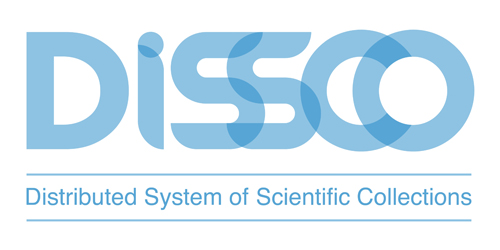
DiSSCo
DiSSCo- Distributed System of Scientific Collections
Italian coordinator:
- Natural History Museum, University of Florence (Lorenzo Cecchi and Gianna Innocenti)
Representative for the CNR:
- Francesca Maggiore
ISMAR contacts:
- Francesca Maggiore;
- Lucilla Capotondi;
- Luciana Ferraro.
DiSSCo is an European research infrastructure focusing on the sharing of data linked to the natural science collections preserved in various European institutions, through their digitization. The end purpose is the creation of a single portal for accessing digital resources, as well as optimising care and management practices aimed at ensuring the availability of data according to FAIR principle (Findability, Accessibility, Interoperability, Reusability). DiSSCo is the largest formal agreement between natural history museums, botanical gardens, universities, Biodiversity research institutions that preserve and curate collections; 21 European countries and 130 institutions are currently participating.
DiSSCo is in the preparatory phase and partner institutions have developed targeted projects for its construction: ICEDIG (2018-2020), SYNTHESYS+ (2019-2021), DiSSCo Prepare (2020-2022). MOBILISE (2018-2023) ENVRI-FAIR (2019-2023).
Italy established the Italian consortium for participation in RI DiSSCo: the Natural History Museum of the University of Florence is the national contact point, while the CNR is the leader in the PNIR with ISMAR as the reference institute and Institutes of the DSSTTA and DISBA departments distributed throughout the national territory.
ISMAR researchers make available to DiSSCo collections and expertise in the marine natural sciences, including botany (Armeli Minicante S), zoology (Camatti E, Guarneri I, Maggiore F, Sigovini M, Tagliapietra D), paleontology (Angeletti L, Asioli A, Capotondi L, Ferraro L) and computer science (Giordano L, Conese I, Grande V).
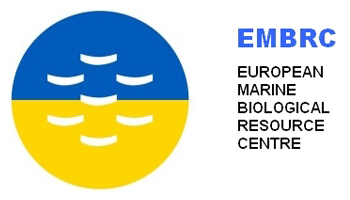
EMBRC-ERIC
EMBRC-ERIC – European Marine Biological Resource Centre
Italian coordinator:
- Marco Borra – SZN, Stazione Zoologica A. Dohrn, Napoli, National coordinator EMBRC, CNR representatives of JRU-IT, Diego Fontaneto CNR -IRSA, Luisa Patrolecco CNR -ISP
ISMAR contacts:
- Lucia Bongiorni – CNR-ISMAR, ISMAR contact for EMBRC and Liaison Officer ISMAR-Venezia, ASSEMBLE Plus
- Mauro Bastianini – CNR-ISMAR, contact for the site Acqua Alta platform for the network Ocean Sampling Day and EMO BON
EMBRC is a European research infrastructure dedicated to the application of interdisciplinary and technological development approaches to marine biology and ecology. The infrastructure, consisting of a network of marine biology stations and research institutes distributed across Europe, intends to offer researchers, from both academia and private industry, the opportunity to study marine organisms and their ecosystems, access data banks of organisms and facilities to study them, including experimental facilities and technological platforms. (a transnational access program offering scientific services from The Italian JRU, coordinated by the Stazione Zoologica di Napoli (SZN), sees the participation of CNR institutes (IAS, IRBIM, IRSA, ISMAR and ISP).
Within the JRU-IT, ISMAR contributes substantially in making its ecosystem access and analysis services available. In particular, ISMAR-Venice is one, out of the 32 european marine stations providing transnational access within the H2020 project ASSEMBLE Plus, http://www.assembleplus.eu/access/access-providers/ISMAR, coordinate one of the two italian sites (the Acqua Alta platform) belonging to the EMO BON- European Marine Omics Biodiversity Observation Network and contribute to the Ocean Sampling Day initiative. Finally, CNR-ISMAR participates in the call for the strengthening of the RI-EMBRC in the context of “health and food” of the PNRR.

Euro-Argo ERIC
Euro-Argo – The European contribution to the Argo programme
Coordinatore Italiano:
- Elena Mauri – Istituto Nazionale di Oceanografia e Geofisica Sperimentale (OGS), Trieste
Contatti ISMAR:
- Emanuele Organelli – Responsible for CNR-ISMAR (ITINERIS project)
Euro-Argo ERIC is a European research infrastructure that aims to coordinate, contribute, and strengthen the European contribution to the international Argo programme. The Argo programme is a major pillar of the Global Ocean Observing System (GOOS) and the Global Climate Observing System (GCOS). It counts about 4000 autonomous robotic vehicles that observe the oceans every 10 days between the surface and 2000 m depth to understand the role the oceans have in the climate system, for ocean health and how all these will evolve. Started in 1999 to collect vertical profiles of temperature and salinity, since 2016 the Argo programme has expanded its objectives towards observation and understanding of marine biogeochemistry and biological resources (BioGeoChemical-Argo programme), exploration of deep oceans down to 6000 m depth (Deep Argo programme), and polar seas. All together, these objectives form the OneArgo programme. Each Argo profile of both hydrological and biogeochemical variables is freely open to the community and available in Real-Time (< 24 h) after quality-control.
Euro-Argo is a European Strategy Forum on Research Infrastructures (ESFRI) Landmark, and 13 Countries joined its missions. Euro-Argo missions are: (i) to guarantee the observation of European seas, (ii) to operate the Argo components for studying biogeochemistry, deep and polar seas, (iii) to coordinate and provide access to high quality data.
Since 2022, CNR-ISMAR contributes to the Italian network (which is coordinated by OGS) by: (i) sustaining the BioGeoChemical-Argo array (with a primary focus on the Mediterranean Sea) and defining the development strategy of the European network; (ii) developing quality-control procedures for radiometry and coordinating an international Working Group; (iii) contributing to outreach and training courses, both at the national and international levels; (iv) contributing to the organization of Euro-Argo Users and Science workshops; (v) participating to working groups for Argo and Euro-Argo strategic development (G7 FSOI and EuroGOOS).